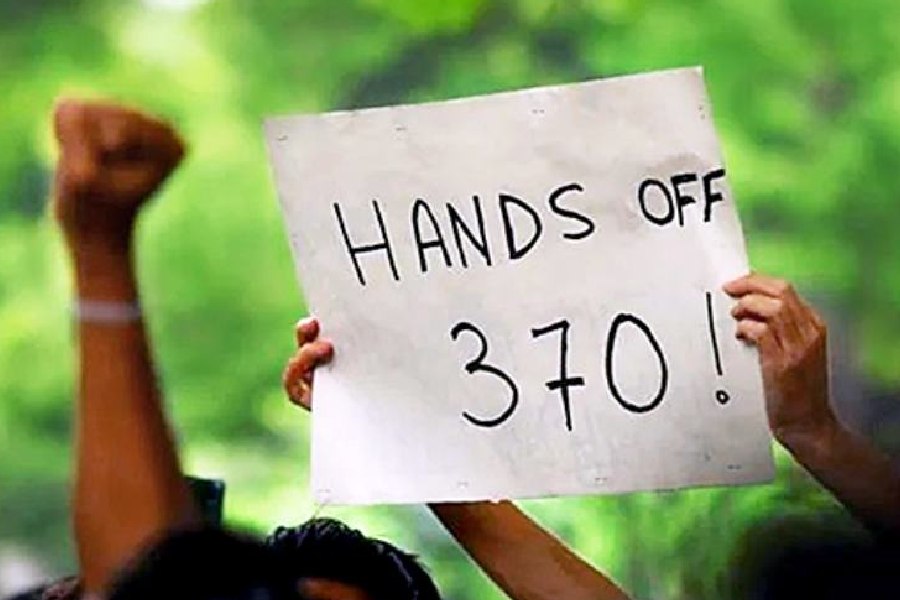A five-judge Constitution bench of the Supreme Court will begin hearing from August 2 a batch of petitions challenging the constitutional validity of the Centre’s decision to abrogate Article 370 in Jammu and Kashmir.
A bench of Chief Justice of India D.Y. Chandrachud, Justice Sanjay Kishan Kaul, Justice Sanjiv Khanna, Justice B.R. Gavai and Justice Surya Kant on Tuesday briefly heard various petitioners and solicitor-general Tushar Mehta, appearing for the Centre, on the modalities for the hearing.
The bench fixed July 27 as the deadline for filing of written submissions and convenience compilations by different parties.
The CJI announced that the hearing would take place on a day-to-day basis except on Mondays and Fridays, which are miscellaneous days when fresh matters are listed before benches.
CJI Chandrachud clarified that the affidavit filed by the Centre on Monday maintaining that normality was fully restored in Jammu and Kashmir “will have no bearing on the constitutional question” being raised before the court. Mehta also agreed that it would not have any bearing on the issues raised by the petitioners with regard to the constitutionality of the abrogation of Article 370.
Senior advocate Dushyant Dave complained that the Centre’s affidavit was widely reported in the media, but the CJI remarked: “We cannot control what is there in the press.”
The bench appointed advocates Prasanna and Kanu Aggarwal as nodal counsel for the preparation of common convenience compilations. The nodal counsel have to ensure that the compilations are indexed and paginated, and copies will be given to all counsel.
The bench also permitted IAS officer Shah Faesal and human rights activist Shehla Rashid to withdraw their names from the list of petitioners.
The bench said the present case would henceforth be titled as “In Re: Article 370”.
On December 20, 2018, President’s rule was imposed in Jammu and Kashmir under Article 356 of the Constitution, which was subsequently extended on July 3, 2019.
On August 5, 2019, the Centre decided to strip the erstwhile state of Jammu and Kashmir of its special status and bifurcate it into two Union Territories.










